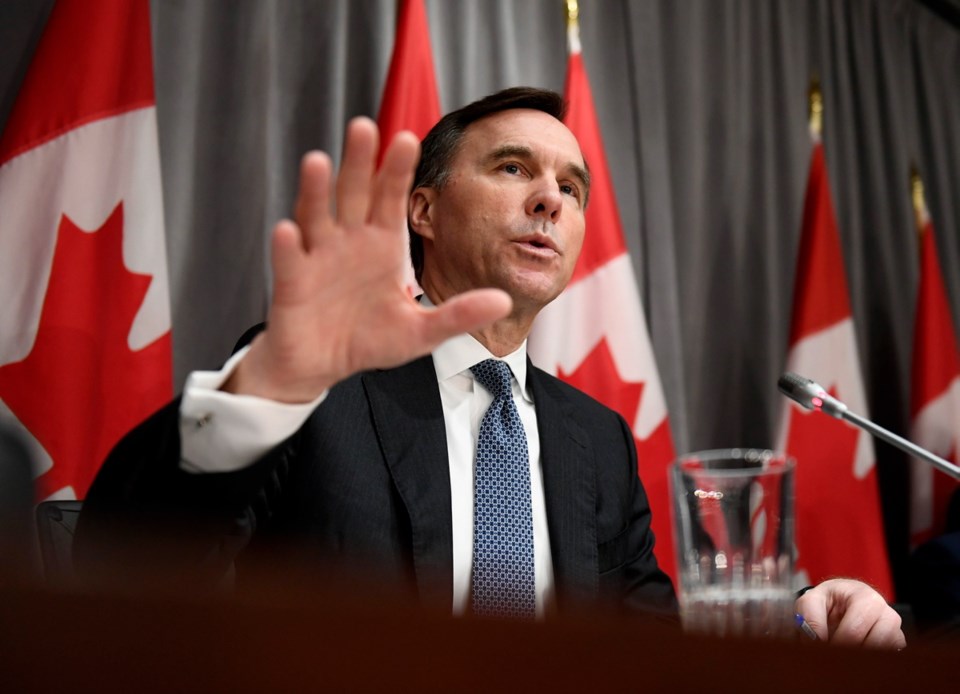The federal government’s economic measures Wednesday were the most decisive moves in the war against the personal and financial perils the country will face in the first weeks of the pandemic.
While there are no tax cuts — something that would have been instantly hitting the next payroll, but might have had to persist post-COVID-19 — there are tactical moves to backstop the least fortunate in the early wave of economic calamity.
These came about a week or two later than might have been most helpful, but you can see in the moves from Ottawa a pattern to shift behaviour and deal with the emotional consequence of what that entails.
It seems to amount to: stay out of crowds, stop roaming the world, go home, stay home, you’ll have money to keep food on the table if your work routine collapses. Next.
The $27 billion in direct aid and $55 billion in deferred taxes amount to about 3% of our gross domestic product. Spain’s support this week amounts to 20% of its GDP, which suggests Justin Trudeau’s government is by no means done.
His finance minister, Bill Morneau, made a point of repeating the mantra that the government will do “whatever it takes … whatever it takes” at his news conference Wednesday.
The markets may continue to crater, the price of oil and the dollar may wilt, but the consumer and household holes will be plugged with an imminent blitz of our own money (well, our debt for future generations to deal with) to ourselves.
Money of this magnitude can never be microscopically targeted, but the large-scale gestures have enough precision to help those most vulnerable, whether the family or the business or the family business.
If this doesn’t get Canadians’ attention that we’re not in some sort of hyped media chamber of excessive fear, then heaven help us. Politicians of all stripes, economists, health authorities, all sorts of brainy beings, are counselling this support and more in the weeks ahead. Other countries are ahead of us still in fuelling their underheated economies.
Yet, it is fair to say we have only laced on our running shoes and stretched our limbs for the social distancing marathon. Most likely we can expect three, four, maybe more periods of societal separatedness. The support signalled from Ottawa suggests an initial papering-over until mid-July; by then, by the best estimates available, health authorities believe COVID-19 will have peaked in ÎÚŃ»´«Ă˝ and will be slowly subsiding.
What we don’t know — among many things we don’t — is whether there will be an autumn resurgence. Among many things that are myths is that somehow the coronavirus dissipates with warmer weather. It’s closer to the truth that we simply share illness more in colder weather. But the basic truth really is that we are learning something every day about this.
What would be helpful, now that we’ve engineered ourselves socially, are some signals about how we can conduct ourselves economically.
For instance: Can we finally get the hoarders out of our stores? Can we let the supply chains supply ourselves normally and not have to deal with panicked customers clearing shelves of supplies that others will need? This has been a disgraceful period of credit card-propelled looting, a kind of mercenary day-trading in the essentials of our well-being.
But back to the message: staying informed will assist in staying well or in at least mitigating the mess. It is redeeming that many responsible media have determined that any sort of online barrier to the most life-relevant journalism has to be shed. Consume them and remember their value on the other side of this.
Other businesses are emerging as exemplars in reaching out with their resources to support their communities. The businesses that need the community’s support might breathe a little easier today, now that the cheques will soon be in the mail.
The last thing we need as we need to take care of each other is a concern about feeding ourselves. To its credit, the government is trying to own its share of the burden, but this cannot be a time to look to government to solve all of it. No government can bear that.
The responsibilities are with us to take care of ourselves and each other. Ottawa’s moves don’t take us off the hook, but they don’t leave us on a bad one, either.
Kirk LaPointe is publisher and editor-in-chief of Business in Vancouver and vice-president, editorial, of Glacier Media.



